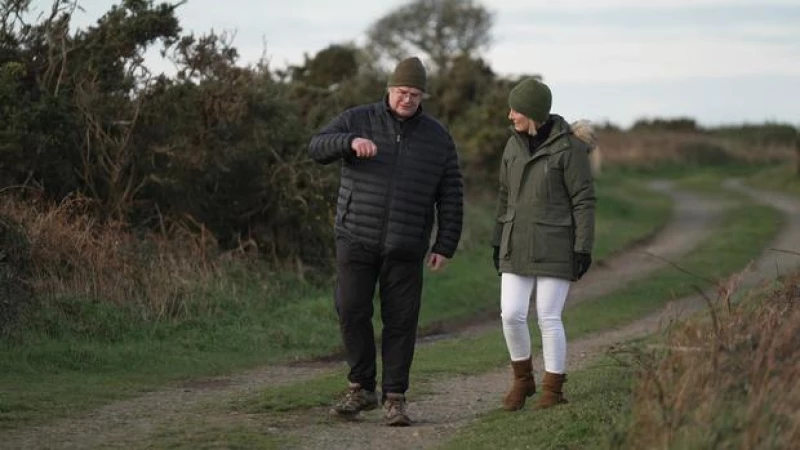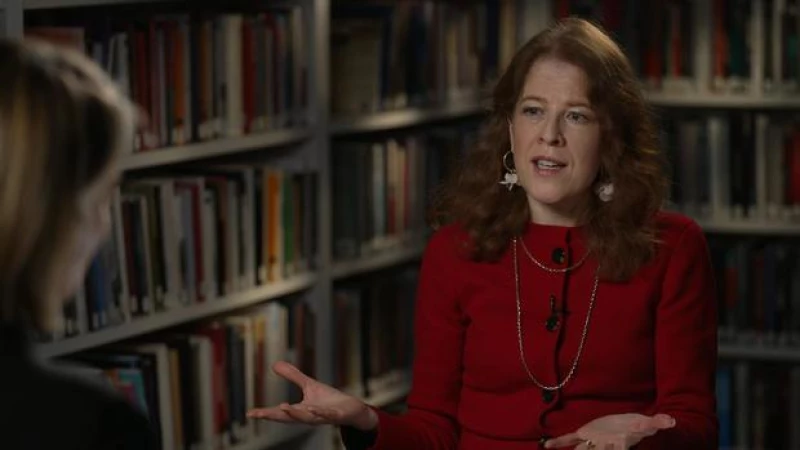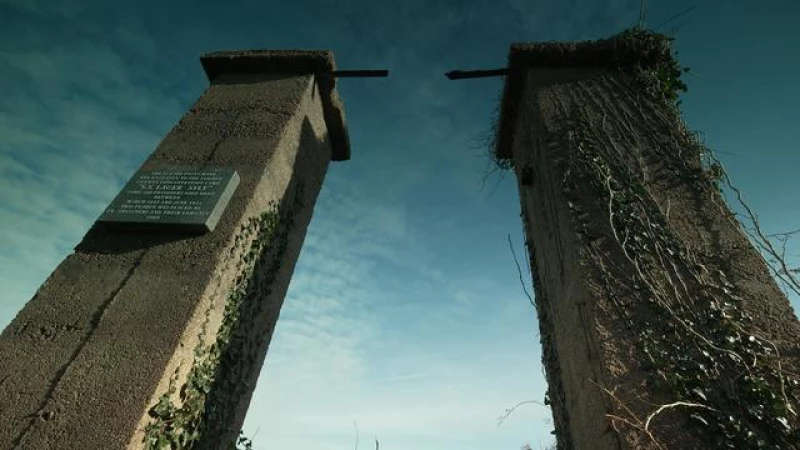Surrounded by the encroaching embrace of nature reclaiming the decaying concrete walls of a little-known Nazi concentration camp on a British island, researchers are delving into records to uncover the number of lives lost during the almost five years of German occupation.
The Channel Islands, positioned just off the French coast, came under English rule around a millennium ago. When Germany seized control of France in 1940, the British government deemed the Channel Islands strategically unimportant and surrendered them without resistance. German forces established two concentration camps, along with labor camps, on the island of Alderney.
Following the conclusion of the war in 1945, the British military conducted investigations into the camps. However, the exact death toll has been a subject of contentious debate in the years since. While the British military estimated the number of deaths to be in the low hundreds, amateur historian Marcus Roberts, who has dedicated years to researching this overlooked chapter of British history, asserts that over 10,000 individuals must have perished on Alderney. Roberts, driven by his Jewish heritage, is resolute in his mission to account for all those who died.
"There is the Jewish instinct to, you know, leave no one behind," he remarked.
Remembering Alderney: A Dark Chapter in History
In a chilling chapter of World War II, nearly all of the residents of Alderney, a small island measuring about three miles long and one-and-a-half miles wide, made the difficult decision to evacuate before the arrival of German troops. These troops brought in prisoners of war and forced laborers to construct massive fortifications as part of Hitler's Atlantic Wall, aimed at defending against Allied attacks. Shockingly, some of the prisoners were Jewish, while others hailed from various European countries including Russia, Ukraine, Poland, and Spain.
Describing the harrowing conditions, one former prisoner recounted, "We were beaten with everything they could lay their hands on: with sticks, spades, pickaxes." While there is no evidence of gas chambers on Alderney, there were instances of summary executions, as noted by Dr. Gilly Carr, an archaeologist at Cambridge University. The prisoners toiled on the Nazi fortifications while enduring starvation rations.
"They were certainly seen as expendable," Carr remarked. "The aim was to get every ounce of work out of them. And if they died, it didn't matter, and that was kind of, perhaps, 'expected.'"
According to accounts from former prisoners, some individuals were either thrown into the sea or pushed off cliffs, complicating efforts to ascertain the true death toll. "It is likely that some of the people in mass graves were Jewish. And according to Halakha, or Jewish law, you cannot disturb the dead," Carr explained, shedding light on the challenges of documenting the atrocities that occurred on Alderney.
What happened on other parts of the Channel Islands?
During the occupation, while nearly all the residents of Alderney evacuated, those on the other Channel Islands decided to remain. The locals had little choice but to cooperate when the Germans arrived. In Guernsey, Hitler's portrait was displayed outside a cinema. Nazi propaganda portrayed British police collaborating with German troops. A British newspaper on Jersey even printed orders from Berlin alongside the swastika symbol.
At the official archives in Jersey, Linda Romeril exhibited how British officials enforced Nazi policies, including the identification and asset confiscation of Jewish residents.
Despite the risks, some individuals resisted by painting anti-Nazi graffiti and secretly listening to British news on the radio. Louisa Gould, a member of the resistance, sheltered an escaped Russian prisoner in her home for nearly two years, according to her relative Jenny Lecoat. Lecoat recounted that when her great aunt was eventually captured, she was sent to Ravensbrück concentration camp in Germany and perished in a gas chamber.
While some like her great aunt resisted the Nazis, others "betrayed their own country," Lecoat noted. The occupation of the Channel Islands painted a complex and conflicting picture, she added.
"The British government, I think, were kind of ashamed," Lecoat reflected. "They were horrified it had happened, and they didn't really want to get too involved in what had gone on there."
Uncovering the Truth
Recent revelations have sparked questions about a possible cover-up by the British government regarding the atrocities on Alderney. Some believe that over 10,000 individuals may have perished on the island, based on contentious estimates of the labor force required for constructing fortifications.
While the possibility of a cover-up exists, a crucial document from the British War Office investigation, which could shed light on the lack of prosecutions, is mysteriously missing. Efforts to locate it have been fruitless, leaving many unanswered questions.

"To assert the presence of a cover-up, I need to examine the decision-making process," stated Carr. "I aim to scrutinize the facts and draw my own conclusions."
What motives could have driven the British government to conceal or downplay the events on Alderney and the Channel Islands at large?
"There are certain occurrences that the British government might have preferred to keep hidden from the public eye," Carr remarked.
In light of these developments, Roberts seeks an official apology from the government for the events that transpired.
"It is only right for them to acknowledge the failures that occurred," he remarked.
Exploring the Events on the Channel Islands
The investigation is tapping into a wealth of resources; the Nazis kept meticulous records, and British archives house firsthand accounts from survivors.

Lord Pickles, a former Cabinet minister and current U.K. envoy for post-Holocaust matters, spearheaded the British government's initiative to reveal the truth by revisiting the number of casualties.
"The discrepancies are not minor, they are in the tens of thousands," Pickles revealed.
Furthermore, he has tasked researchers with identifying as many of the deceased as possible.
"By remembering them as individuals, we strike another blow against Hitler," he emphasized. "Hitler aimed to erase their memory."







